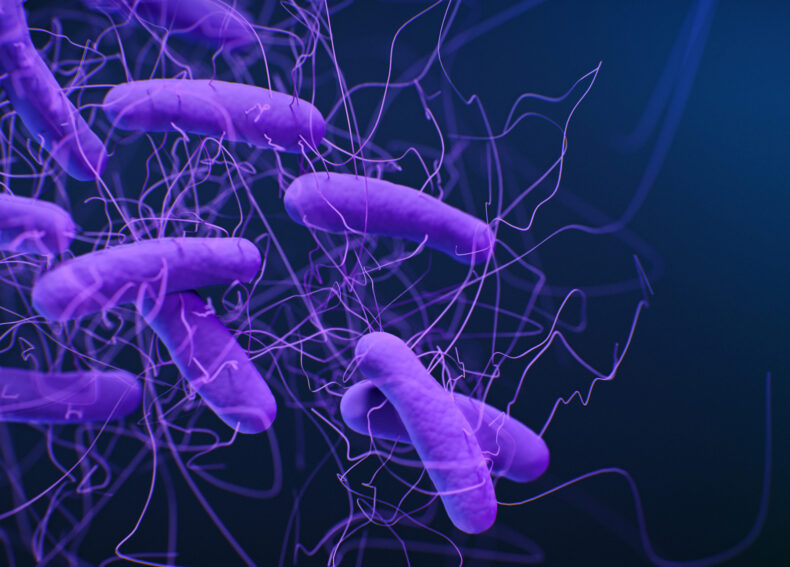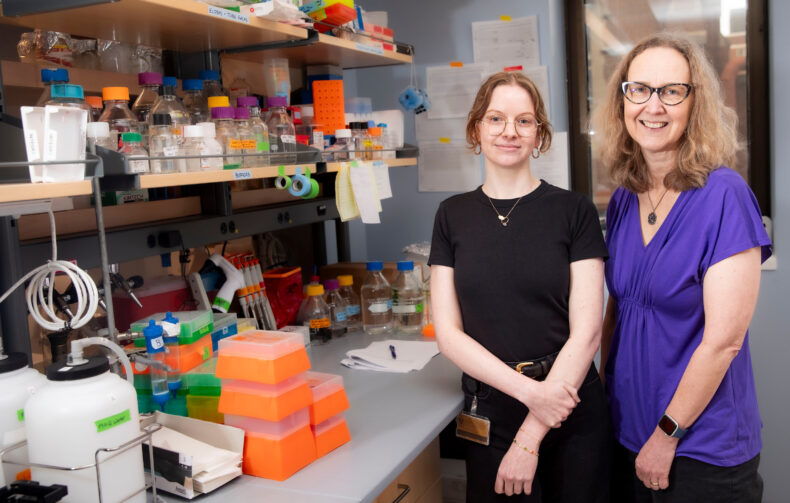Clostridium difficile (C. difficile) infection is the leading cause of hospital-acquired diarrhea, causing nearly a half million infections in the United States each year. Recurrence after treatment with antibiotics is common and new therapies are needed.
TcdB is a toxin produced by the bacterium that upon entering epithelial cells lining the colon causes cell death. A human monoclonal antibody that blocks the toxin from entering the cell has been shown to protect against C. difficile infection in animal models and reduce recurrence in humans.
Now Heather Kroh, PhD, Ramyavardhanee Chandrasekaran, PhD, Ben Spiller, PhD, Borden Lacy, PhD, and colleagues show that the antibody, PA41, recognizes a single conserved amino-acid sequence of the toxin from multiple C. difficile strains.
Their work, published Jan. 19 in the Journal of Biological Chemistry, reveals a unique mechanism of C. difficile toxin neutralization by a monoclonal antibody. The antibody, in turn, provides a novel tool for understanding how bacterial toxins are transported across the membrane.
This research was supported in part by United States Department of Veterans Affairs Award BX002943, grants from the National Institutes of Health (AI095755, AI108778), and by MedImmune through a collaborative project award.
Send suggestions for articles to highlight in Aliquots and any other feedback about the column to aliquots@vanderbilt.edu











